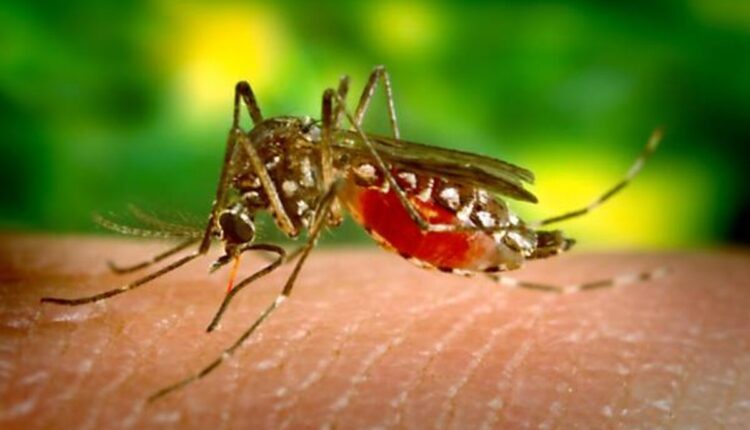Dengue Fever – Preventive Measures
Dengue fever is a viral infection that causes fever and other symptoms in humans. The infection is often life-threatening. However, it can also be prevented and treated by taking preventive steps. One of the most common preventive steps is to get a blood test. The test is simple and takes less than five minutes. This test is relatively safe, has minimal risks, and quickly disappears symptoms.
Severe dengue is a life-threatening worsening of dengue symptoms
Severe dengue is a more severe form that can result in shock, organ failure, and even death. Severe dengue is more common among people who have already been infected with dengue fever or have a history of frequent exposure to the dengue virus. The symptoms of severe dengue are similar to those of dengue fever, but they worsen quickly.
Severe dengue is an acute, life-threatening type of joint disease caused by one of four related viruses. Although most cases are mild, severe dengue can be life-threatening within hours of infection. The virus is transmitted by mosquitoes, which bite humans and animals. The mosquitoes, usually female Aedes aegypti, are also responsible for transmitting the chikungunya and Zika viruses.
The disease has an increasing prevalence and is responsible for more than half a million hospitalizations annually. About 2.5 percent of these patients do not survive. Various factors, including globalization, air travel, and the lack of effective vector control methods, have contributed to the increasing burden of dengue. As a result, the disease is an increasingly important public health challenge, especially in developing nations.
IgM antibody is detectable one week after infection.
Various methods detect the presence of IgM antibodies in the dengue virus. The best way to detect dengue infection is to collect a blood sample within the first five days of illness. If the result is positive, the patient has been infected with the dengue virus. If it is negative, the patient is in doubt, and a second blood sample should be taken to confirm the diagnosis.
The response to an infection differs in every individual, as the host’s immune system plays a vital role in the outcome. Usually, the immune response begins slowly, with an increase in specific antibodies known as IgM. After five days of illness, IgM antibody levels increase significantly, reaching as high as 80%. Then, in two to three months, the level of IgM antibody becomes undetectable.
In 2006, an outbreak of dengue fever in Guangzhou, China, led to a panel of 313 acute-phase serum specimens. This study showed that serum samples from individuals who became ill from the disease were highly positive for dengue NS1. The sensitivity of the test ranged from 81.8% to 91.1%. The study also showed that anti-dengue IgM antibody levels were detectable as early as day three after infection. By day eight, the anti-dengue IgM antibodies were 100% positive.
Prevention
Prevention of dengue fever includes knowing the symptoms and avoiding the areas where this infection is common. The virus is spread by the Aedes mosquito, which prefers areas with standing, clean water, and nearby habitats. There is no vaccine for dengue fever, so the only prevention option is to avoid mosquito bites. The best prevention method is to wear long pants and sleeves, use insect repellents and close your windows and doors during the early morning hours. You should also avoid wearing dark-colored clothes, which can attract mosquitoes.
The World Health Organization (WHO) provides a global view of dengue. The site also includes the latest news about the disease and a Q&A page. The CDC provides detailed information about dengue and advice for prevention and mosquito control. In addition, the World Mosquito Program (WMP) is a nonprofit organization that works to eradicate the dengue virus worldwide.
In endemic areas, several methods exist to control the dengue mosquito population. One of the most effective is vector control, which involves controlling mosquito breeding grounds. Fogging and eliminating breeding sites are standard practices in areas with high dengue transmission.
Treatment
There is no specific treatment for dengue fever, but patients should seek medical advice as soon as possible. Patients should rest and drink plenty of fluids in the early stages to control the fever. They may be admitted to the hospital for in-hospital management if symptoms are more severe. Painkillers reduce fever, and a doctor may prescribe an intravenous drip to keep patients hydrated. Patients with severe dehydration and bleeding must receive intravenous fluid resuscitation. It is also important to monitor electrolytes and packed cell volume.
Dengue fever treatment may include transfusions and food that increases the platelet count. Foods rich in iron, vitamin C, and vitamin K may also help recovery. The disease can also lead to cerebral edema. Severe dengue patients may also experience severe itching. Patients may also develop a rash with a vasculitic or maculopapular pattern.
The most common treatment for dengue fever is rest and plenty of fluids. Most people recover completely within two weeks. They should see a doctor for hospitalization if they suffer from severe cases.



Comments are closed.